On October 8, the Sino-American Youth Dialogue on Climate Change was held at Tsinghua University. The Center for International Security and Strategy (CISS) participated in the planning and organizing of the event, with its Deputy Directors DA Wei and XIAO Qian attending the event. Professor Da was also invited to give comments on the roundtable discussions.
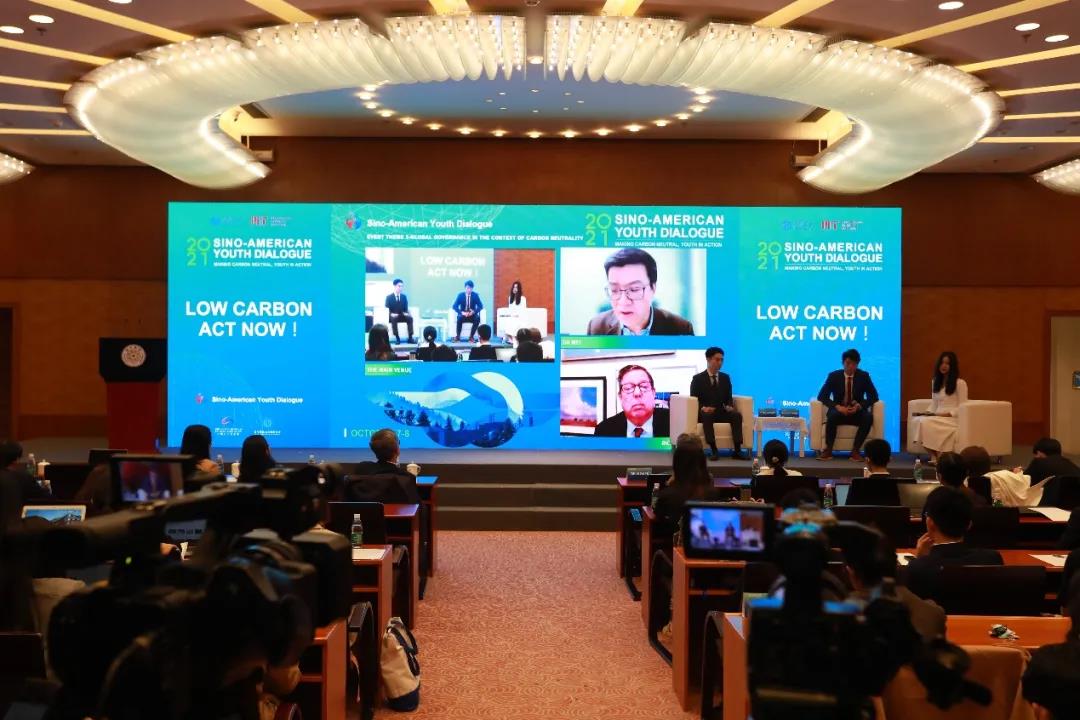
Professor Da Wei comments on the roundtables
Themed “Making Carbon Neutral, Youth in Action,” this event was hosted by Tsinghua University and Massachusetts Institute of Technology (MIT), and organized by the Graduate Union of Tsinghua University and MIT China Development Initiative, bringing together 71 representatives from 36 universities in 7 countries.

Opening Ceremony
At the opening ceremony, QIU Yong, president of Tsinghua University, extended a warm welcome on behalf of the University to the student representatives and guests attending the event, and recalled the long history of connection and cooperation between Tsinghua and MIT. Leading universities should play a leading role in shouldering the responsibility to tackle the most challenging issues confronted by humankind, he pointed out. Furthermore, he presented the efforts of establishing Tsinghua’s Institute of Climate Change and Sustainable Development, Institute for Carbon Neutrality, and the Global Alliance of Universities on Climate (GAUC), and encouraged younger generations to come together to create a greener and more beautiful future with their wisdom, energy and creativity.
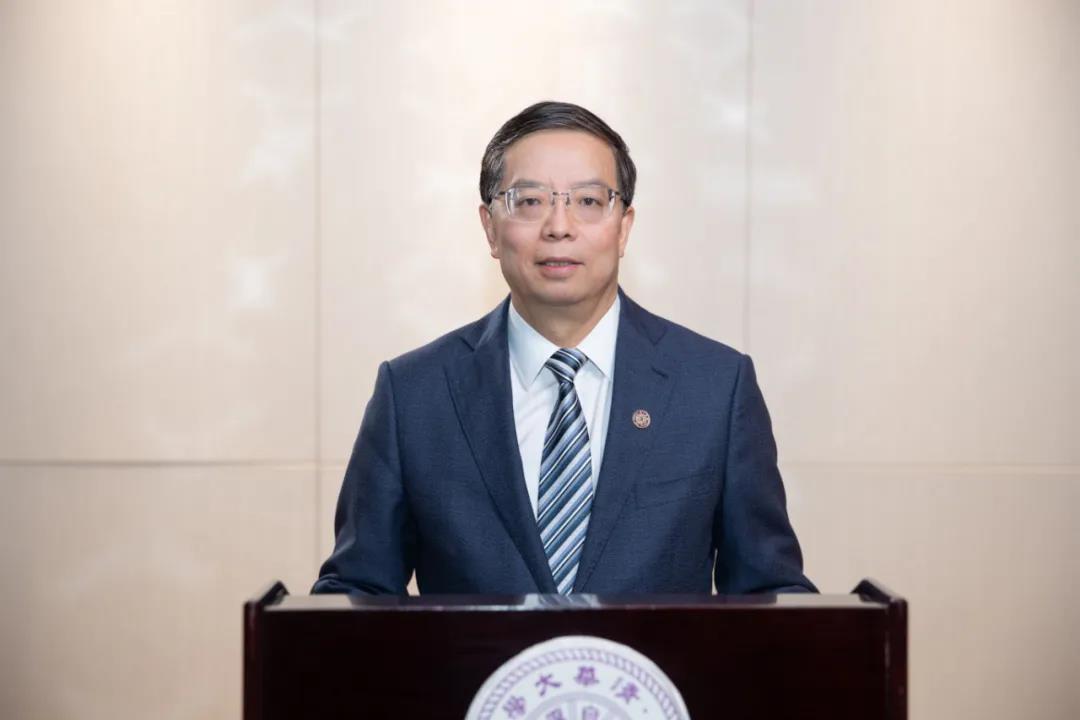
Opening remarks by Qiu Yong
In his opening address, L. Rafael Reif, president of MIT, said that dealing with climate change requires intense, international cooperation and the United States and China have a shared responsibility to lead the way. By combining their strengths, China and the US have an opportunity for meaningful collaboration that will make an impact in time for it to make a difference. This Sino-American Youth Dialogue was a powerful way to build mutual trust , he noted, encouraging students from around the world to build on their creativity and ingenuity in finding answers for future challenges set by climate change, in order to help make the impossible possible and save our planet.
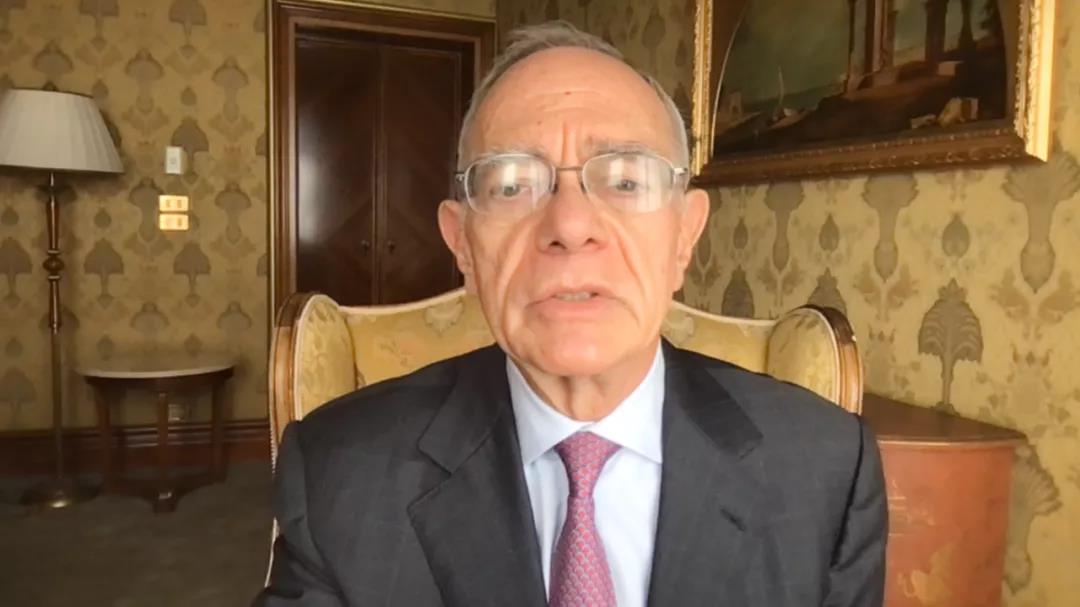
Opening speech by L. Rafael Reif
Other guests at the event included Beate Trankmann, UNDP Resident Representative in China, LI Zheng, Executive Vice President of Tsinghua’s Institute of Climate Change and Sustainable Development, and Susan Solomon, Professor of Environmental Studies at the MIT Department of Earth, Atmospheric and Planetary Sciences, among others. In her speech, Ms. Beate Trankmann highlighted the importance of youth in creating a greener and more sustainable future, noting that the world can only shift to a greener path if countries work together and share experiences and technologies. Professor Li Zheng stressed the significance of the unremitting efforts of younger generations across the globe for achieving carbon neutrality, encouraging them to advocate and pursue green development by giving full play to their innovative awareness and power as young changemakers. Professor Susan Solomon expressed optimism about the possibility of addressing the global climate crisis, calling on young people to stay committed to innovation and practical problem-solving at a time of unprecedented technological advancement and increasingly favorable policies. At the closing ceremony, Mr. Audie Wong, Executive Director of the China-United States Exchange Foundation, the sponsor of the event, expressed his appreciation for the insightful and inspiring dialogues and his expectations for a future of greater collaboration between Chinese and American youth in exploring solutions to global climate challenges.
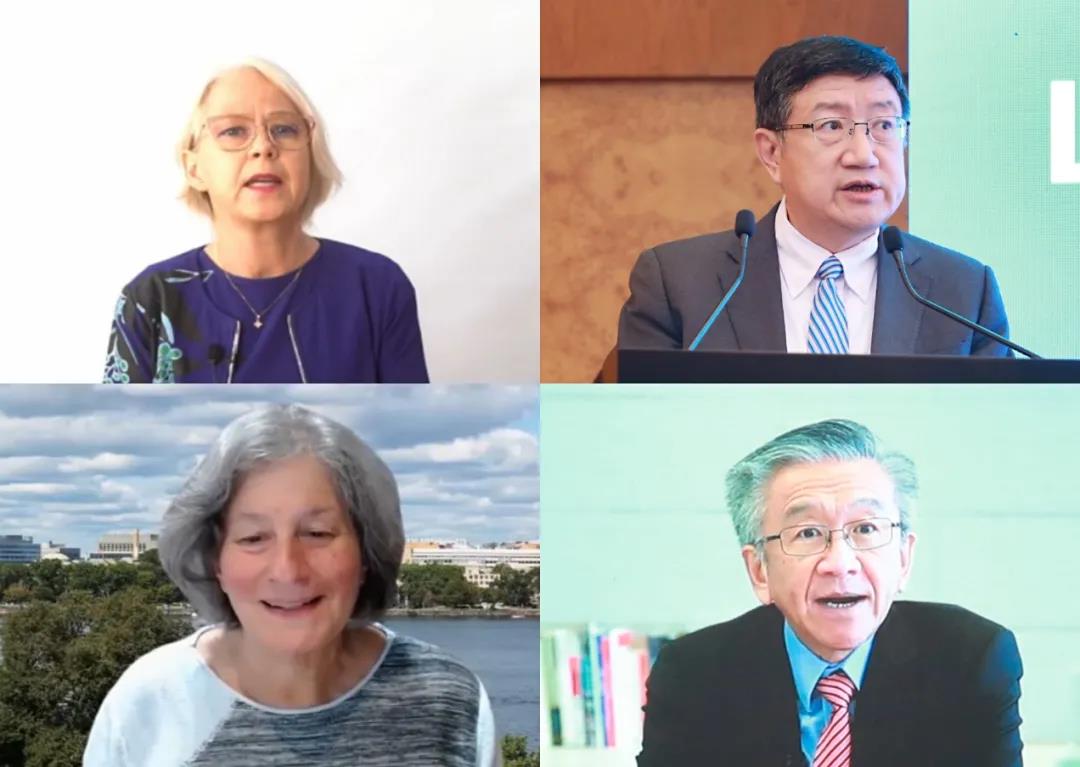
Addresses by Beate Trankmann, Li Zheng, Susan Solomon, and Audie Wong (left to right, top to bottom)
Focusing on climate change, this Sino-American Youth Dialogue launched the Joint Youth Initiative for Climate Change Response and Biodiversity Protection under Carbon Neutrality Goals. Two student representatives, ZHANG Keren from China and Ava Waitz from the US, read out the Initiative, which was divided into four sections: “Becoming better action takers,” “Becoming better sharers,” “Becoming better researchers,” and “Becoming better advocates,” calling for international cooperation and mobilization to achieve the global goals of green, low-carbon and sustainable development and to work together for an ecosystem that respects nature and develops in an environment-friendly way. This initiative will be presented in the COP15 of the UN Convention on Biological Diversity and the 3rd Graduate Forum of the Global Alliance of Universities on Climate, with a view to being read out by youth representatives at the COP26 summit.
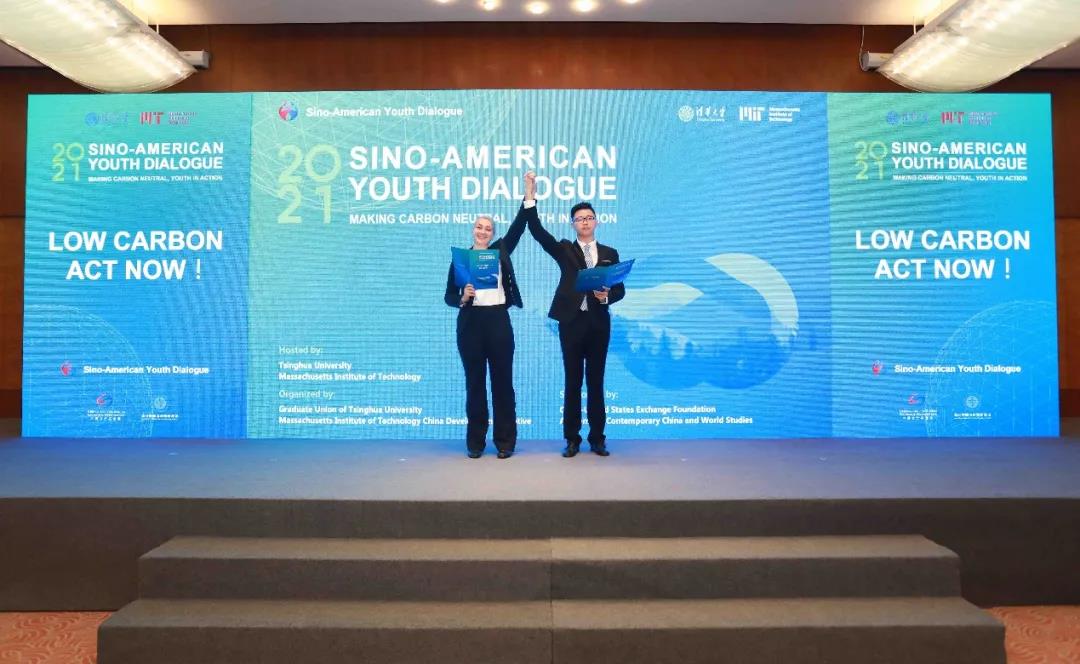
Reading of the Joint Youth Initiative

Roundtable discussion by student representatives
This Sino-American Youth Dialogue adopted a hybrid format by connecting online and offline audiences—students and faculty members from universities in China and the US—for in-depth discussions on climate change. Prior to the event, the Graduate Union of Tsinghua University and MIT China Development Initiative jointly initiated an “Up-Marathon” which aimed to promote low-carbon campuses by encouraging students to take the stairs instead of the elevators. Other activities such as the “Low Carbon Pledge,” low carbon research and garbage sorting were also launched to promote a low carbon lifestyle. On top of that, this dialogue used renewable materials for all of its conference supplies as it was committed to being a green event, advocating to the participants the feasibility of a low carbon lifestyle. The event was sponsored by the China-United States Exchange Foundation and the Academy of Contemporary China and World Studies.
